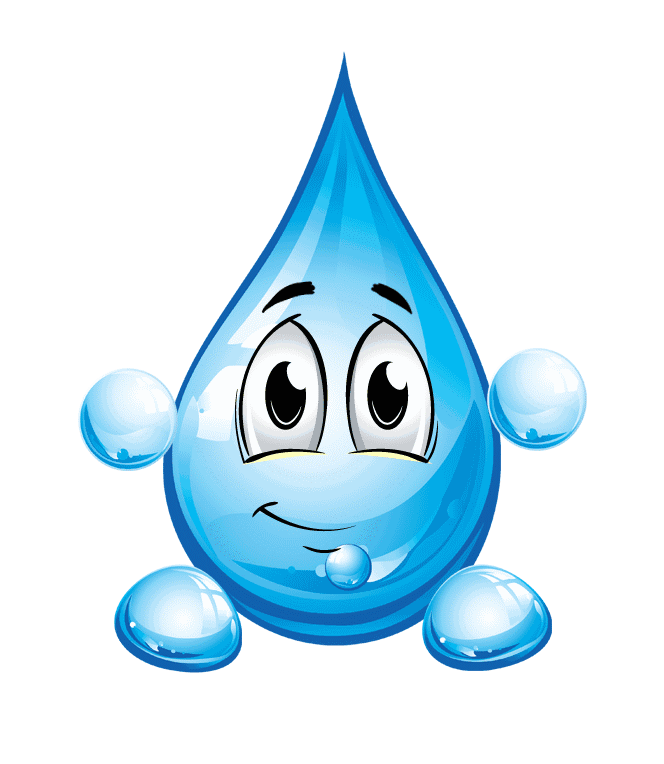Spelling of words with double consonants in the root. Definition of the topic of the lesson and statement of tasks of the lesson. Owl nest rains mass red box office
Lesson objectives
- Training: improving the knowledge of the spelling of words with double consonants in the root; spelling skills formation; to teach to express their thoughts and understand the position of the interlocutor.
- Developing: student speech development; activation of verbal and logical thinking; the formation of abstract thinking, sustainability of attention; intellectual development due to a new level of initiative and independence of students in the organization of the educational process.
- Educational: fostering camaraderie, mutual assistance, love of the Russian language.
Forms of work:intra-group and general class discussions, work in groups, independent dialogue of students among themselves regarding the solution of an educational task.
Equipment:
- Cards: calligraphy, verification of theoretical material, creative assignment, self-assessment sheet;
- Buneev R.N., Buneeva E.V., Pronina O.V. Russian language. Textbook for 3rd grade. Part 1. Vol. 3, revised. - M.: Balass, 2008.
During the classes
I. Organizational moment
Check readiness for the lesson.
How would you like to see today's Russian language lesson?
Writing on the board:
- interesting
- informative
- fruitful
- developing
Explain each concept.
To make the lesson like this, one teacher is not enough, your help is also needed. What should students be in a lesson?
Writing on the board:
- Pupils:
- active
- thinking
- workable
- attentive
- neat
- disciplined
- friendly
Can you become like that? At the end of the lesson we will analyze whether it turned out the way we wanted to see it.
II. Calligraphy
We begin, as usual, with a moment of calligraphy.
Each group receives a task to come up with a stroke with letter combinations that are on your table. (ss, ll, nn, bb)
If you have any difficulties, there is a sample on the back of the card, you can use it.
What letter combinations did you write the stroke with? Show the cards to each other.
Why do you think we took these letter combinations for calligraphy - ss, ll, nn, bb? (double consonant in a word)
On the desk: nn, kk, ss, zh, mm, pp, pp, ll, bb
III. Goal setting
What do you think is the topic of today's lesson?
On the desk: Spelling of words with double consonants in the root
With a double consonant, we certainly write the words:
antenna, kilogram and gram, and ton,
passenger, highway, column,
quarrel, tennis and program,
group, cash, telegram,
russian, class, Saturday, bath,
Rimma, Emma, \u200b\u200bInna, Anna.
I hope that you will try to show your knowledge on this topic, the ability to write words with double consonants in the root. We will develop observation, our speech, enrich the vocabulary.
You will work in groups. Remember - it is important not only to complete the task yourself, but also to help your comrades. After all, not only personal result is important, but also the result of the work of the whole group, which will lead to the success of the whole class.
IV. Actualization of knowledge (general discussion)
To begin with, let's recall everything that you know on the topic of the lesson. Discuss in the group the questions given on the cards; at the end of the work, check yourself according to the textbook. The pages of the textbook are indicated below on the card.
(Self-control on all issues. Group assessment)
- Green circle - I actively participated in the work of the group, I successfully completed the tasks. I am very glad!
- Yellow circle - in the lesson, not all assignments were so easy. It was hard for me, but I did it. I am quite satisfied with myself!
- Red circle -the assignments were too difficult. I need help!
| No. p / p | Questions | Self control | Group Rating |
| 1 | Which of these letter combinations are double consonants? nn, lcd, kk, dk, ss, sk, tr, zd, lzh, sun, mm, pp, rr, ll, bb | ||
| 2 | What does double consonant in a word mean? | ||
| 3 | Is it possible to check the spelling of a double letter in the root of the word? | ||
| 4 | How are words with a double consonant transferred? Write down two words | ||
| 5 | Write down two words with a double consonant that cannot be transferred | ||
| 6 | Is the spelling double the consonant in the root of the word? Why? | ||
| 7 | Write down vocabulary words with a double consonant in the root of the word | ||
| 8 | Write one word so that it has a double combination of consonants in the root of the word that you wrote in calligraphy. How many letters, sounds in this word? |
V. Creative work
1. Exercise in writing words with a double consonant (Intra-group discussion, self-examination, self-verification, mutual assistance)
And now, a creative task. Replace the phrase with one word.
1 group
- Making drawings from glued or sewn pieces of paper, fabric.
- Instrument, technical device.
- There is a great desire.
- Belts, ropes for horse control.
- A substance from microscopic fungi that causes fermentation.
- Paved road.
- The state of mutual hostility.
- A group of persons with special powers.
- A child, a teenager who studies nature.
- Head of theater, film or television production.
- Artificial pond designed for swimming.
- Women's names.
2 group
- Several objects or people located close to each other or connected together.
- Acute viral disease.
- A combination of several musical sounds of various heights.
- To produce a monotonously rattling sound, whistling noise.
- Executive man, observing everything in order.
- Sports running.
- A man whose scientific works are of great value.
- Paired sports game with a small ball that is thrown by a racket over the net.
- Sick leave.
- Type of city transport.
- A popular game on ice.
- Workmate.
3 group
- A person with a great inner culture.
- An urgent message transmitted by telegraph.
- Explanatory drawing.
- Mass units
- Decorative lighting of parks and streets on the occasion of a celebration.
- Day off.
- A large usually oblong tank for bathing and washing.
- Summer extension to the house.
- Employee of the newspaper, magazine.
- One type of ball game.
- Animal training.
- High school graduation certificate.
4 group
- The science of change and combination of words.
- A pedestrian road lined with trees on both sides.
- A group of people united by common work, study, interests.
- A systematic collection of any items.
- The room in which cash transactions are conducted.
- Limited land space.
- Medical dressing.
- Tamer of predatory animals.
- Drawings in a magazine, newspaper, book.
- The room at the school.
- Through passage, dug underground.
- Sports running.
Dynamic pause
Creative assignments (intra-group discussion, self-examination, mutual verification, mutual assistance)
And now, a creative task. Each group on the cards offers. Open the brackets and write the resulting words.
1 group
Ra (n, nn) \u200b\u200bher (o, a) se (n, nn) \u200b\u200bher morning. Already p (o, a) (ss, s) led. I stand (o, a) u and o (o, a) zu (na) te (pp, p) a (ss, s) y. Ch (e, u, i) through (b) (o, a) ko (n, nn) \u200b\u200bst (i, u, e) clo (c) of the tuma (n, nn) \u200b\u200byu gave (b).
2 group
It blows (i, u, e) p k (o, a) h (a, i) em in (e, i, u) rkhu (w, g) ki d (i, u, e) roar (b) ev . I s (o, a) wu (c) with a (a, o) baku (C, c) myself and go (c) with (a, o) s (n, nn) \u200b\u200bgrove (y, u). Co (n, nn) \u200b\u200bth (C, c) trellis b (u, i, e) f (s, u) t (behind) me.
3 group
We are (i, u, e) giving (by) the length of (nn, n) oi (o, a) (ll, l) her. In (a, o) kru (k, d) gro (n, n) am, bushes of w (s, u) follower and m (o, a) (zh, g) (u, e) (cv, c) grow ate nickname. The soil n (a, o) is covered by a bright rustling sound (a, i) i ma (ss, s) a.
4 group
Even then (n, nn) \u200b\u200bs leaf (b) ev (a, o) bl (u, e) tel (s) d (u, i, f) roar (b) ev. And out of (x, w) sos (t, d) pr (a, o) (φφ, φ) e (ss, c) (a, o) p (T, r) e (n, nn) \u200b\u200ba ( dd, e) u (K, k) and (pp, p) and (l, ll) ovich b (u, e) x (s, u) t (po) a (l, ll) her. He loves mornings (u, e) (nn, n) nye cro (s, ss) s.
Read what you got. Explain the spelling of words.
Let's read it again, connect all the parts and see what happened.
What did we do? Prove it is text. What signs of text do you know? ( The text consists of sentences. Sentences in the text are related in meaning. The text has a title. By the title you can determine what will be discussed in the text.)
How can I title a text?
Autumn morning.
Early autumn morning. Already dawned. I get up and go out onto the terrace. I look through the window glass into the foggy distance. The wind shakes the treetops. I call the dog Strelka with me and go to the pine grove. Sleepy Arrow runs after me. We wander along a long alley. Bushes of rosehip and juniper grow around groups. The soil is covered with a bright rustling mass. Already tons of leaves flew from the trees. And our neighbor, Professor Gennady Kirillovich, is running along the alley. He loves morning crosses.
VI. Lesson summary
Do you think we have solved the problems of the lesson?
Thanks for the interesting collaboration. The result of the work of each group led to the success of the whole class. Well done!
Lesson topic: “Learning words with double consonants in the root of the word”
goal : learn to analyze language material.
Tasks :
Practice spelling words with double consonants in the root of the word;
Spelling training.
Lesson Type: learning new material.
At the end of the lesson, the student must:
Know: spelling of words with double consonants.
Be able to: apply your knowledge when writing.
Teaching methods used by the teacher in the lesson: work with a book, observation, practical teaching methods, differentiated approach.
Methodical techniques:
- analysis of linguistic material: classification of words;
- vocabulary work.
Forms of organization of educational activities used by the teacher in the lesson:individual, work in pairs, groups.
During the classes:
1. Organizational stage
Guys! I'm glad you're ready for the lesson. I really want our lesson to be interesting and informative today.
2. Motivation for learning activities:
For our lesson, I picked up this epigraph:
“People will not be born with finished craftsmanship, but they are proud of the acquired craftsmanship.”
Explain the meaning of this proverb.
3. Determining the topic of the lesson and setting the objectives of the lesson.
Shootout game.
Which word will be superfluous? Why? And now?
Owl nest rains mass red box office
Retires.
1 - red (adjective, and all other nouns.)
2 - rains (plural, and all other units)
3 - nest (Wed.R., and all the rest.R.)
4 - owl (answers the question who ?, everyone else - the question what?)
Remained words: mass and box office
What unites the remaining words?
- Remember, this year we studied the writing of this spelling?
State the topic of the lesson.
What would you like to get from the lesson today?(I WANT, I CAN, NECESSARY).
Define the objectives of the lesson. (Learn to write words with double consonants in the root of the word, enrich the vocabulary).
- Guys, tell me how many letters in a wordclass? (5)
And the sounds? (4)
- Say the third sound.(c) What is he like? (consonant…)
What does it sound like? (long, long).
There is one peculiarity in the phonetics of the Russian language - we pronounce - (class), (alley), (hack), and we writeclass, alley, hockey. These words with double consonants are borrowed from other languages, so their spelling must be remembered.
If we doubt the spelling of the word, where can we turn?
4. Double-consonant spelling exercises
A) The game "Photographer".
I suggest you take a look with your eyes from the sentence of the word, where there is a double consonant.
On the screen:
PHILIPPE PLAYS IN HOCKEY.
PASSENGERS LEAVE THE PERRON.
ALLA GATHERED A COLLECTION OF BRANDS
Write singular words, underline double consonants.
Check
Now check the written pattern.
On the screen:
PHILIPPE HOCKEY
ALLA COLLECTION
PASSENGER PERRON
Who spelled all the words right?
Well done! Put a “+” sign in the margins next to the number entry.
And now the vertical bar denotes the transfer of these words.
(One child works on an interactive whiteboard).
B) Independent workTextbook p. 18 exercise 2.
Swap notebooks with your neighbor.
Verification ( 3 students read out the words in columns).
Fizminutka.
Game "Catch the word."
The teacher calls the words. If there is a double consonant in them, then the children clap their hands, and if they have one consonant, they squat.
Highway, exercise, corridor, Saturday, class, raspberries, mass, Alla, director, amount.
IN) - Write down the words, insert the missing double consonants. Underline them.(2 people at the blackboard).
Ak ... it’s good, ho ... kay, ha ... leriya, professional ... this, ak ... robat, te ... ritoria, braid ... mos, long ... on, cal ... calendar.
Check
Who completed the task correctly? Well done! Put a “+” sign next to another sign.
Work in groups.
(Intra-group discussion, self-examination, mutual verification, mutual assistance)
- Join in groups. Replace the phrase with a word that has double consonants in the spelling.
1 group
1.Making drawings from glued or sewn pieces of paper, fabric.
2. The device, technical device.
3. There is a great desire.
4. Belts, ropes to control the horse.
5. A substance from microscopic fungi that causes fermentation.
6. The road is paved.
7. The state of mutual hostility.
8. A group of persons with special powers.
9. A child, a teenager who studies nature.
10. Head of a theater, film or television production.
11. The artificial reservoir constructed for swimming.
12. Feminine names.
Application, apparatus, appetite, reins, yeast, highway, quarrel, commission, youngster, director, pool, Alla, Anna, Rimma, Jeanne, Inna.
2 group
1. Several objects or people located close to each other or connected together.
2. Acute viral disease.
3. A combination of several musical sounds of various heights.
4. To produce a monotonously rattling sound, whistling noise.
5. Executive man, observing everything in order.
6. Sports running.
7. A man whose scientific works are of great value.
8.Pair sports game with a small ball that is thrown by a racket through the net.
9. Sick leave.
10. Type of city transport.
11. A popular game on ice.
12.Comrade at work.
Group, flu, chord, buzz, neat, cross, professor, tennis, newsletter, trolley, hockey, colleague.
3 group
1. A man with a great internal culture.
2. An urgent message transmitted by telegraph.
3. An explanatory drawing.
4. Mass units.
6. The day off.
7.Large usually oblong tank for bathing and washing.
8. Summer extension to the house.
9. An employee of a newspaper, magazine.
10. One of the types of ball games.
11. Training of animals.
12. High school graduation certificate.
Intelligent, telegram, illustration, kilogram, gram, ton, illumination, Saturday, bath, terrace, correspondent, tennis, training, certificate.
4 group
1. The science of changing and combining words.
2. A pedestrian road lined with trees on both sides.
3. A group of people united by common work, study, interests.
4. A systematic collection of any items.
5. The room in which cash transactions are conducted.
6. Limited land space.
7. Medical dressing.
8. Tamer of predatory animals.
9. Drawings in a magazine, newspaper, book.
10. Room in the school.
11. Through passage, dug underground.
12. Sports running.
Grammar, alley, collective, collection, cash register, territory, compress, trainer, illustrations, class, tunnel, cross.
Check (You need to read more, enrich your vocabulary, explanatory dictionary).
The group that wrote the most words puts itself a “+”.
We will write down words that you could not determine by their meaning.
5. Reflection.
The game "Believe, I do not believe."(Prove) Show consent - disagreement.
- Do you believe that a double consonant can be at the end of a word?
- Do you believe that a double consonant can be at the junction of the prefix and the root?
- Do you believe that double consonant can be at the root of the word?
- Do you believe that a double consonant can be at the junction of a prefix and a suffix?
- Do you believe that a double consonant can be at the junction of the root and the suffix?
What tasks did we set ourselves at the beginning of the lesson?
Have we completed them?
Compilation of a syncwine on the topic of the lesson.
But what kind of syncwine the guys from 3B class came up with.
1. The letters.
2. Consonants, doubled.
3. Learn, remember, not make mistakes
4. Everyone needs to know!
5. Literacy.
Lesson topic: “Learning words with double consonants in the root of the word”
goal: learn to analyze language material.
Tasks:
Practice spelling words with double consonants in the root of the word;
Methodical techniques:
- analysis of linguistic material: classification of words;
- vocabulary work.
Forms of organization of educational activities used by the teacher in the lesson: individual, work in pairs, groups.
During the classes:
1. Organizational stage
Guys! I'm glad you're ready for the lesson. I really want our lesson to be interesting and informative today.
2. Motivation for learning activities:
For our lesson, I picked up this epigraph:
“People will not be born with finished craftsmanship, but they are proud of the acquired craftsmanship.”
Explain the meaning of this proverb.
3. Determining the topic of the lesson and setting the objectives of the lesson.
Shootout game.
Which word will be superfluous? Why? And now?
Owl nest rains mass red box office
Retires.
1 - red (adjective, and all other nouns.)
2 - rains (plural hours, and all the rest units)
3 - nest (cf. p., and all the rest w. p.)
4 - owl (answers the question who ?, everyone else - the question what?)
The words remained: mass and cash
What unites the remaining words?
- Remember, this year we studied the writing of this spelling?
State the topic of the lesson.
What would you like to get from the lesson today? (I WANT, I CAN, NECESSARY).
Define the objectives of the lesson. (Learn to write words with double consonants in the root of the word, enrich the vocabulary).
- Guys, tell me how many letters in a word the class ? (5)
And the sounds? (4)
- Say the third sound. (from) What is he like? (consonant…)
- What does it sound like? (long, long).
6. The road is paved.
7. The state of mutual hostility.
8. A group of persons with special powers.
9. A child, a teenager who studies nature.
10. The head of theatrical, cinema or television production.
Intelligent, telegram, illustration, kilogram, gram, ton, illumination, Saturday, bath, terrace, correspondent, tennis, training, certificate.
4 group
1. The science of changing and combining words.
2. A pedestrian road lined with trees on both sides.
3. A group of people united by common work, study, interests.
4. A systematic collection of any items.
5. The room in which cash transactions are conducted.
6. Limited land space.
7. Medical dressing.
8. Tamer of predatory animals.
9. Drawings in a magazine, newspaper, book.
10. Room in the school.
11. Through passage, dug underground.
12. Sports running.
Grammar, alley, collective, collection, cash register, territory, compress, trainer, illustrations, class, tunnel, cross.
Check (You need to read more, enrich your vocabulary, explanatory dictionary).
The group that wrote the most words puts itself a “+”.
We will write down words that you could not determine by their meaning.
5. Reflection.
The game "I believe - I do not believe."(Prove) Show consent - disagreement.
1. Do you believe that a double consonant can be at the end of a word?
2. Do you believe that a double consonant can be at the junction of the prefix and the root?
3. Do you believe that double consonant can be at the root of the word?
4. Do you believe that a double consonant can be at the junction of a prefix and a suffix?
5. Do you believe that a double consonant can be at the junction of the root and the suffix?
What tasks did we set ourselves at the beginning of the lesson?
Have we completed them?
Compilation of a syncwine on the topic of the lesson.
But what kind of syncwine the guys from 3B class came up with.
1. The letters.
2. Consonants, doubled.
3. Learn, remember, not make mistakes
4. Everyone needs to know!
5. Literacy.




